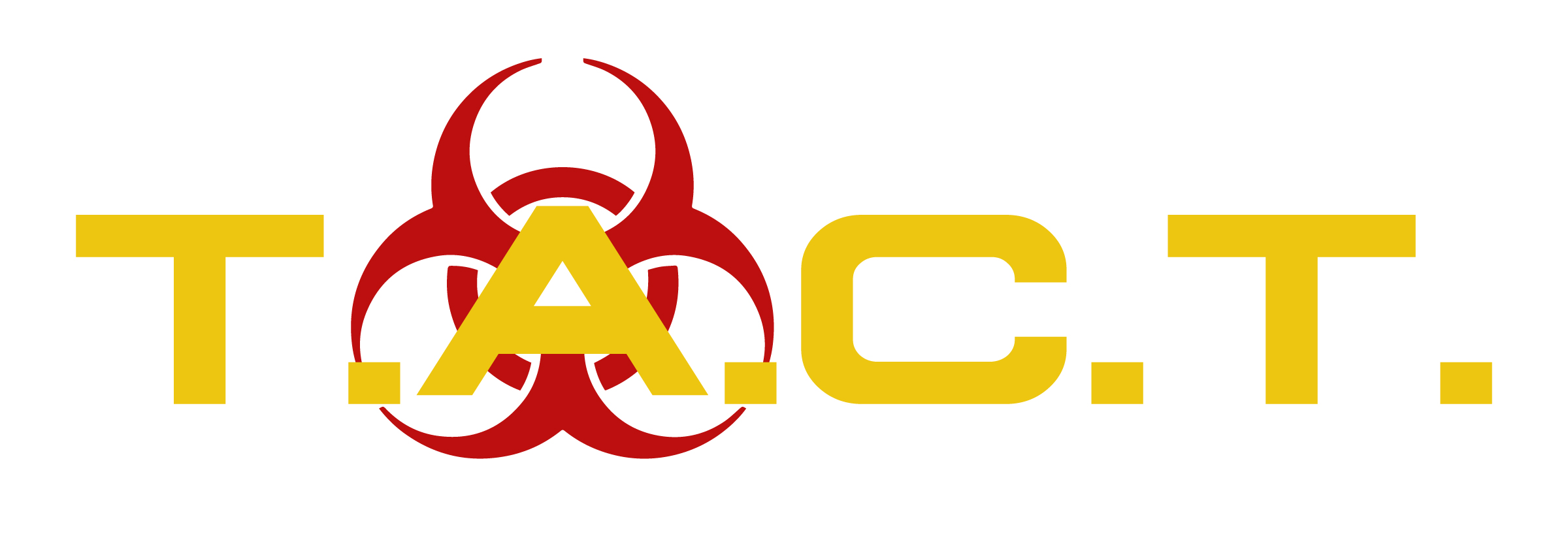Top Mold Inspectors: Ensuring Safe, Healthy Homes

Top Mold Inspectors: Ensuring a Safe and Healthy Home Environment
Your family's health and safety depend on the quality of your indoor environment. When mold takes hold in your home, it can create serious health risks and costly structural damage that threatens everything you've worked to build. Professional mold inspection services provide the expertise and advanced testing methods necessary to identify problems before they escalate into major concerns.
Mold growth is more common than many homeowners realize, thriving in conditions that exist in virtually every home. From minor water leaks to seasonal humidity changes, the right circumstances can quickly transform a small moisture issue into a widespread mold problem. Understanding when to seek professional help—and what to expect from top-quality inspection services—can make the difference between a minor remediation and extensive property damage.
This comprehensive guide explores the critical aspects of professional mold inspection, from understanding how mold develops to selecting the right inspection services for your home. We'll examine the role of advanced testing methods, the relationship between building materials and mold growth, and the substantial benefits of working with certified professionals who can protect your investment and your family's well-being.
Understanding Mold Growth
Mold spores exist naturally in our environment, traveling through the air and settling on surfaces throughout your home. These microscopic organisms remain dormant until they encounter the right conditions: moisture, organic material, and suitable temperatures. Once these elements combine, mold can establish colonies rapidly, sometimes within 24 to 48 hours of water exposure.
The organic matter that feeds mold growth includes common building materials like wood, paper, fabric, and even dust. Mold colonies can appear in various colors—black, green, white, or orange—depending on the species and the surface they're growing on. Black mold, while often the most concerning to homeowners, represents just one of many potentially harmful varieties that can develop indoors.
Mold-prone areas in homes typically include basements, bathrooms, kitchens, and any spaces where moisture levels remain elevated. However, hidden mold growth can occur behind walls, under flooring, and in HVAC systems where visual detection becomes nearly impossible without professional equipment.
The presence of mold often announces itself through musty odors that persist despite cleaning efforts. These distinctive smells frequently indicate active mold growth, even when visible signs haven't yet appeared. Water damage from leaks, floods, or excessive humidity creates the perfect environment for rapid mold development, making prompt attention essential.
Professional mold inspectors understand the complex factors that contribute to mold growth and can identify conducive conditions that might not be obvious to untrained eyes. This expertise proves invaluable in preventing small moisture problems from becoming expensive mold remediation projects.
Importance of Professional Mold Inspection
Professional mold inspection services provide comprehensive assessment capabilities that go far beyond what homeowners can achieve through visual examination alone. These inspections identify not only existing mold growth but also the underlying conditions that allow mold to flourish, addressing both immediate concerns and long-term prevention strategies.
The health implications of mold exposure make professional assessment particularly critical. Respiratory issues, allergic reactions, and other health problems can develop from prolonged exposure to mold spores, especially affecting children, elderly individuals, and those with compromised immune systems. Professional inspectors can evaluate the extent of potential health risks and recommend appropriate remediation measures.
Early detection through professional inspection services can prevent minor mold issues from escalating into extensive problems that require costly remediation. When mold growth spreads throughout building materials or HVAC systems, the expense and disruption of proper remediation multiply significantly. Professional inspectors help homeowners address problems while they remain manageable and affordable.
Moisture intrusion sources often extend beyond obvious leaks or flooding. Professional inspectors use specialized equipment to detect hidden moisture sources, including condensation within walls, roof leaks that haven't yet caused visible damage, and plumbing issues that create ongoing humidity problems. Identifying and addressing these sources prevents recurring mold growth.
Insurance considerations also make professional inspection valuable. Many insurance policies require professional documentation of mold issues, and prompt professional intervention can help support claims for water damage or mold remediation. Professional reports provide the documentation needed to work effectively with insurance companies and contractors.
The Critical Role of Mold Testing
Mold testing services complement visual inspection by providing scientific analysis of mold presence, types, and concentrations throughout your home. Air sampling captures mold spores that may be circulating through your living spaces, while surface sampling analyzes specific areas where mold growth is suspected or confirmed.
Professional testing services employ multiple sampling methods to create a comprehensive picture of mold conditions. Air sampling can detect mold spores even when visual growth isn't apparent, helping identify problems in their earliest stages. Surface sampling provides detailed analysis of specific mold colonies, determining exact species and concentration levels.
Certified laboratory analysis ensures testing results meet rigorous scientific standards. Professional mold testing services work with accredited laboratories that specialize in mold identification, providing accurate species identification and spore count analysis. This precision enables targeted remediation strategies rather than generalized approaches that may be less effective or more expensive.
Hidden mold growth presents particular challenges that testing services address effectively. Mold can develop behind walls, under flooring, or within HVAC systems where visual inspection cannot reach. Strategic air sampling and specialized testing methods can detect these hidden problems before they cause extensive damage or health issues.
Testing results guide remediation decisions by providing specific information about mold types, concentrations, and affected areas. This data helps contractors develop targeted remediation plans that address the actual problems present rather than making assumptions based on limited visual information. Accurate testing also establishes baselines for measuring remediation success.
Building Materials and Mold Vulnerability
Different building materials create varying levels of risk for mold growth, with organic materials generally providing the most favorable conditions for mold development. Wood framing, drywall, insulation, and other cellulose-based materials offer excellent food sources for mold colonies when moisture becomes available.
Drywall presents particular vulnerability because its paper facing provides ideal mold food while its porous structure retains moisture. When water damage affects drywall, mold growth can begin quickly and spread extensively through the material. Professional inspectors understand how different drywall types and installation methods affect mold risk.
Insulation materials create complex challenges for mold detection and remediation. Fiberglass insulation itself doesn't support mold growth, but dust and debris within insulation can provide food sources. Cellulose insulation offers more direct nutrition for mold colonies and can hide extensive growth from visual detection.
Wood materials throughout homes—from structural framing to decorative elements—provide excellent conditions for mold growth when moisture levels rise. Different wood species and treatments offer varying resistance to mold, but extended moisture exposure can affect virtually any wood material in your home.
HVAC systems present unique risks because they can distribute mold spores throughout entire homes while providing dark, often humid conditions for growth. Ductwork, air handlers, and ventilation components require specialized inspection techniques to identify mold problems that could affect your entire home's air quality.
Professional inspectors evaluate how different building materials in your specific home create mold risks and recommend appropriate prevention strategies. This materials-focused approach ensures recommendations address your home's unique vulnerabilities rather than applying generic solutions.
Comprehensive Benefits of Professional Inspection Services
Working with professional mold inspection services provides homeowners with peace of mind that comes from thorough, expert evaluation of their home environment. Professional inspectors bring years of training, specialized equipment, and systematic approaches that ensure no potential problems go unnoticed.
Advanced testing methods available through professional services include thermal imaging to detect hidden moisture, moisture meters that measure water content in building materials, and sophisticated air sampling equipment that captures and analyzes mold spores with laboratory precision. These tools provide information impossible to obtain through basic visual inspection.
Cost savings represent a significant benefit of professional inspection services. Early detection and intervention prevent minor moisture issues from becoming major mold problems requiring extensive remediation. Professional inspectors help homeowners address root causes rather than just symptoms, preventing recurring problems that create ongoing expenses.
Professional inspection services also provide valuable education for homeowners. Inspectors explain how mold develops, what conditions to monitor, and what maintenance practices help prevent future problems. This knowledge helps homeowners become active partners in protecting their homes rather than reactive responders to problems.
The documentation provided by professional inspection services serves multiple important purposes. Detailed reports support insurance claims, provide baselines for monitoring improvements, and offer essential information for contractors planning remediation work. Professional documentation also adds value when selling homes by demonstrating proactive maintenance and problem resolution.
Selecting Quality Mold Inspection Services
Choosing the right mold inspection service requires careful evaluation of qualifications, experience, and methodology. Look for inspectors with specific training in mold assessment, relevant certifications from recognized organizations, and established relationships with accredited testing laboratories.
Experience with your type of property matters significantly. Residential mold inspection requires different expertise than commercial assessment, and regional climate conditions affect mold risks in ways that local experience helps address. Ask potential inspectors about their experience with homes similar to yours and problems common in your area.
Professional mold inspectors should use systematic inspection protocols that ensure comprehensive evaluation of your property. Quality services include detailed visual inspection, strategic testing based on findings, and clear reporting that explains results and recommendations. Avoid services that rely primarily on expensive testing without thorough visual assessment.
References and reviews from previous clients provide valuable insights into service quality and reliability. Professional inspection services should readily provide references and demonstrate a track record of satisfied customers. Online reviews and Better Business Bureau ratings offer additional perspectives on service quality.
Taking Action for Your Home's Health
Professional mold inspection represents an investment in your family's health and your property's value. When you notice musty odors, experience unexplained health symptoms, or discover water damage, prompt professional assessment can prevent minor concerns from becoming major problems.
Don't let uncertainty about potential mold issues create ongoing worry or health risks for your family. Professional mold inspection services provide the expertise, equipment, and analysis needed to understand exactly what you're dealing with and how to address it effectively. Contact qualified mold inspection professionals in your area to schedule a comprehensive assessment that protects both your investment and your peace of mind.
Meta data
Meta title
Top Mold Inspectors: Ensuring Safe, Healthy Homes
Meta description
Professional mold inspection services protect your family's health and property value. Learn how expert testing and assessment prevent costly problems.
Latest news

Professional unattended death cleanup in Atlanta. Expert technicians handle decomposition cleanup safely with specialized equipment. 24/7 emergency response available.
Read More

